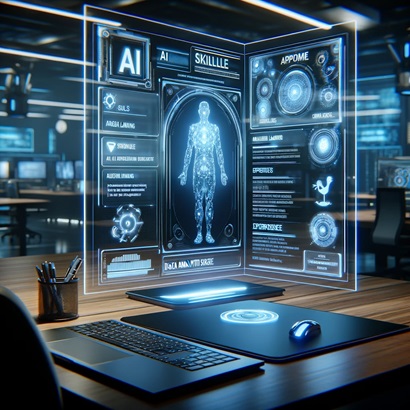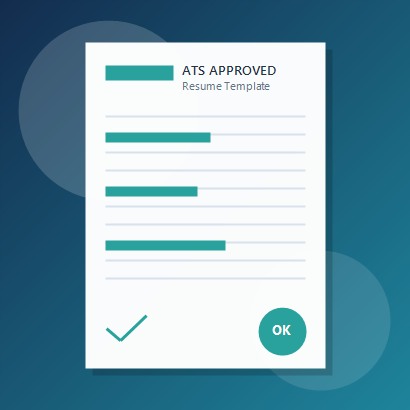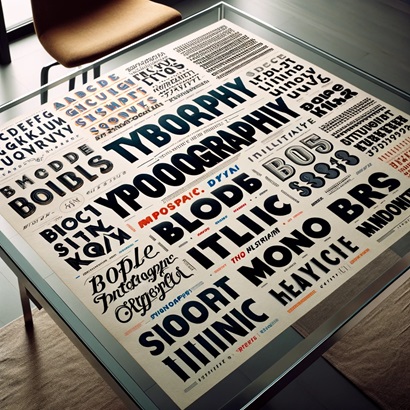The Future of Resumes: Trends to Watch Out For
Resume Optimizer Pro Editorial Team
Updated July 2, 2025

Navigating the evolving landscape of the job market requires a resume that not only stands out but also adapts to new trends and technologies. As we look to the future, the traditional resume as we know it is undergoing significant transformations. This guide will delve into the emerging trends that are defining the next generation of resumes. We'll explore how job seekers can harness these developments to craft resumes that not only capture the attention of hiring managers but also align with cutting-edge recruitment technologies and strategies.
Increasing Importance of Digital Presence
The future sees resumes not as standalone documents, but as part of a broader digital profile. Platforms like LinkedIn already play a critical role in how professionals showcase their careers. As we move forward, resumes will increasingly become integrated with these platforms, offering a more dynamic presentation of a candidate's skills and experiences. This integration allows for real-time updates and the ability to share professional achievements as they happen, making resumes more fluid and reflective of current capabilities.
For many professions, particularly in creative and technical fields, the traditional resume is expanding into digital portfolios. These portfolios provide a visual and interactive experience for recruiters, showcasing the work and projects that a resume simply cannot convey on its own. Digital portfolios not only enhance the visual appeal but also allow candidates to demonstrate their skills directly through the work they've produced.
Personal Branding Through Resumes
Resumes are increasingly adopting a narrative style that emphasizes storytelling. This trend moves away from the bullet-point list of job duties to focus on a cohesive narrative that highlights career progression, major achievements, and the unique value a candidate brings to potential employers. This approach helps candidates stand out by weaving their professional qualifications into a compelling story that aligns with the culture and goals of prospective employers.
As the job market becomes more competitive, the customization and personalization of resumes are becoming more crucial. Job seekers are tailoring their resumes not just to the industry but to specific companies and job postings. This involves using keywords from job descriptions, mirroring company language and culture, and emphasizing relevant experiences and skills that directly align with the job criteria.
Technology's Role in Resume Development
Artificial intelligence is already starting to impact how resumes are created and read. AI-driven tools can optimize resumes for keywords and formats that are most likely to succeed in ATS (Applicant Tracking Systems). In the future, these tools might also provide personalized recommendations for improvements based on job descriptions and hiring trends, making it easier for candidates to adapt their resumes to increase their chances of success.
The use of predictive analytics in resume optimization is on the rise. These technologies can analyze vast amounts of data from job postings and successful job applications, offering insights into which skills and experiences are trending in the job market. This can guide job seekers in highlighting the most marketable aspects of their professional background, anticipating market needs before they become mainstream.
Challenges and Ethical Considerations
With the increasing use of digital tools and online platforms, privacy concerns are more prominent. Job seekers must navigate the balance between visibility and privacy, deciding how much personal information to disclose. As resumes become more integrated with online profiles, the potential for data breaches increases, necessitating more robust security measures.
While AI can enhance the job application process, there is also a risk of built-in biases in automated systems, particularly in ATS. These systems may inadvertently favor certain types of resumes based on how they are programmed, potentially leading to discrimination. Ongoing efforts are needed to ensure these technologies are as unbiased and fair as possible.
Conclusion
The resume of the future is dynamic, digitally integrated, and richly personal. As we witness these changes, it’s crucial for job seekers to adapt to these trends to craft resumes that not only pass through automated filters but also capture the human eye. At Resume Optimizer Pro, we are at the forefront of these trends, providing tools and insights that help job seekers create resumes that meet current standards and anticipate future needs. Our service ensures that your resume remains both competitive and reflective of your professional identity, giving you the edge in a crowded job market.
Final Thoughts
As the landscape of professional job applications continues to evolve, staying informed about the latest resume trends is crucial. By anticipating changes and adapting to new technologies and practices, job seekers can position themselves effectively for the opportunities of tomorrow. Whether through enhanced digital presence, personalized branding, or leveraging AI, the future of resumes is a promising horizon that offers new ways to shine in the job market.


